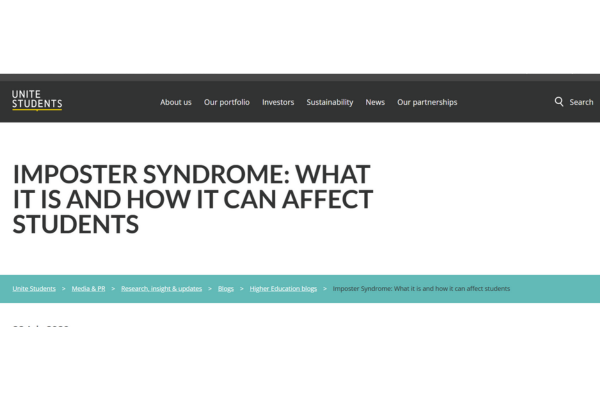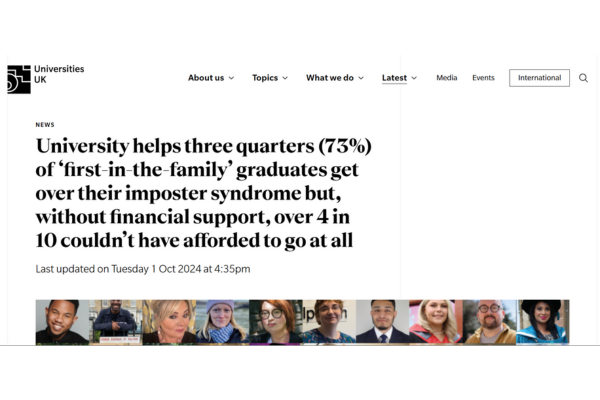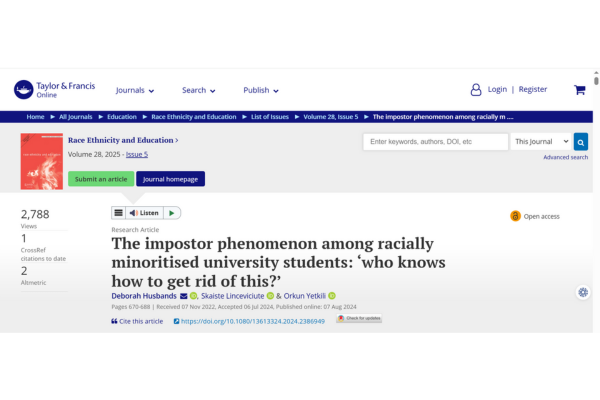Imposter Syndrome is a term coined to describe the feeling of incompetence despite evidence of accomplishments and worth.
Research shows that impostor syndrome is a common experience for university students, affecting their ability to engage, perform and succeed.
How can we support students? We can keep this phenomenon in mind, talking to our students openly, praising good work and using failure as a learning experience.


UNITE STUDENTS: Imposter Syndrome: What it is and How it Can Affect Students
Imposter Syndrome causes students, especially those from underrepresented groups, to doubt their abilities and universities can support them through conversation, feedback, inclusion and belonging.
Universities UK research shows that being the first in their family to attend university transforms students’ confidence, skills and career prospects, though financial support remains crucial.


Impostor phenomenon among racially minoritised students (Husbands, 2024).
This study highlights how imposter syndrome for racially minoritised students is deeply connected to their racial identity and experiences of marginalisation.
White Western academic culture feels alienating and reinforces the feelings of being an outsider. Students cope by overcompensating or withdrawing.
It calls for universities to recognise these unique challenges and implement supportive measures. The study provides a list of four key recommendations.
